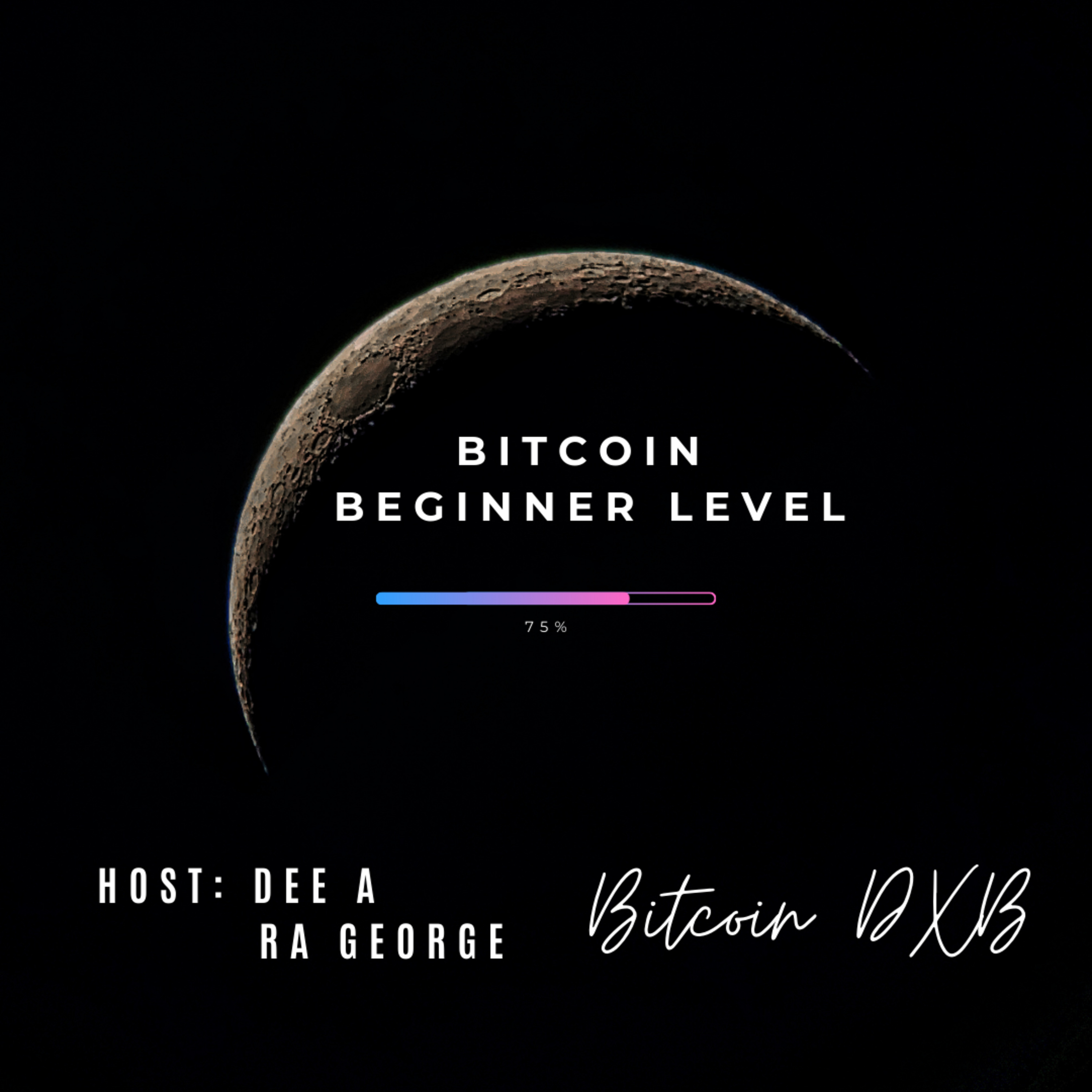
Shownotes Transcript
Date: January 21, 2025Time: 7:00 PM GSTPlatform: LinkedIn Live watch here Hosts: DEE A & RA George
LinkedIn) profile for Dee A) - https://www.linkedin.com/in/deeallan/
LinkedIn) Profile for RA George) -
https://www.linkedin.com/in/ra-george-19b102104/
Watch LinkedIn video here https://shorturl.at/JsSnR
This special beginner-level session of Bitcoin DXB focuses on introducing Bitcoin in a way that's easy to understand for politicians, high-net-worth individuals (HNWIs), educational institutions, lawyers, and government agencies. We break down the basics of Bitcoin, discuss its history, and explain key concepts, providing a solid foundation for anyone new to the world of cryptocurrency.
What is Bitcoin?
Definition:
General public perception: Is Bitcoin a scam, internet money, or crypto? Hosts' definitions: Insights from DEE A & RA George. Whitepaper Definition: Peer-to-peer electronic cash system, as defined by Satoshi Nakamoto.
Why it Matters:
Challenges with the current banking system vs. Bitcoin’s peer-to-peer model. A personal perspective on the inefficiencies of traditional systems like KYC and large-sum transactions.
The Basics of Bitcoin
21 Million Limit: Exploring the concept of demand vs. supply. Bitcoin Halving: An easy breakdown of how and why Bitcoin rewards are halved every 4 years:
History of Bitcoin
Bitcoin wasn’t the first cryptocurrency; others like eCash, B-Money, BitGold, and Hashcash came before. The Double-Spending Problem and how Bitcoin solved it using cryptography, hashing algorithms, and mathematics (SHA-256).
Key Concepts of Bitcoin
Peer-to-Peer: A comparison with fiat systems and real-world examples (e.g., Dubizzle, Facebook Marketplace). Electronic Cash System:
Bitcoin Mining
Simplified explanation: Miners solve puzzles to verify transactions, using energy in a process called Proof of Work (PoW).
Pillars of Bitcoin (Open Blockchain)
Open Source: Transparent source code available on GitHub. Permissionless: No age or location restrictions for users. Borderless: Seamless transactions worldwide. Censorship-Resistant: Miners update transactions without validating their purposes. Publicly Verifiable: Bitcoin transactions are traceable via Blockchain Explorer, making illicit activities detectable.
Comparison to CBDCs
CBDCs are not peer-to-peer and are controlled by central banks. Bitcoin provides transparency, while CBDCs allow selective verification and potential double-spending.
This session breaks down the barriers to understanding Bitcoin, helping beginners grasp why it's often called the future of money.
Join us for future episodes of Bitcoin DXB as we dive deeper into advanced topics like Bitcoin mining, halving, and the future of blockchain.
Follow RA George and DEE A for updates and insights!
Follow Us:Stay updated on the latest in crypto by subscribing to our channels and joining the discussion on LinkedIn.
